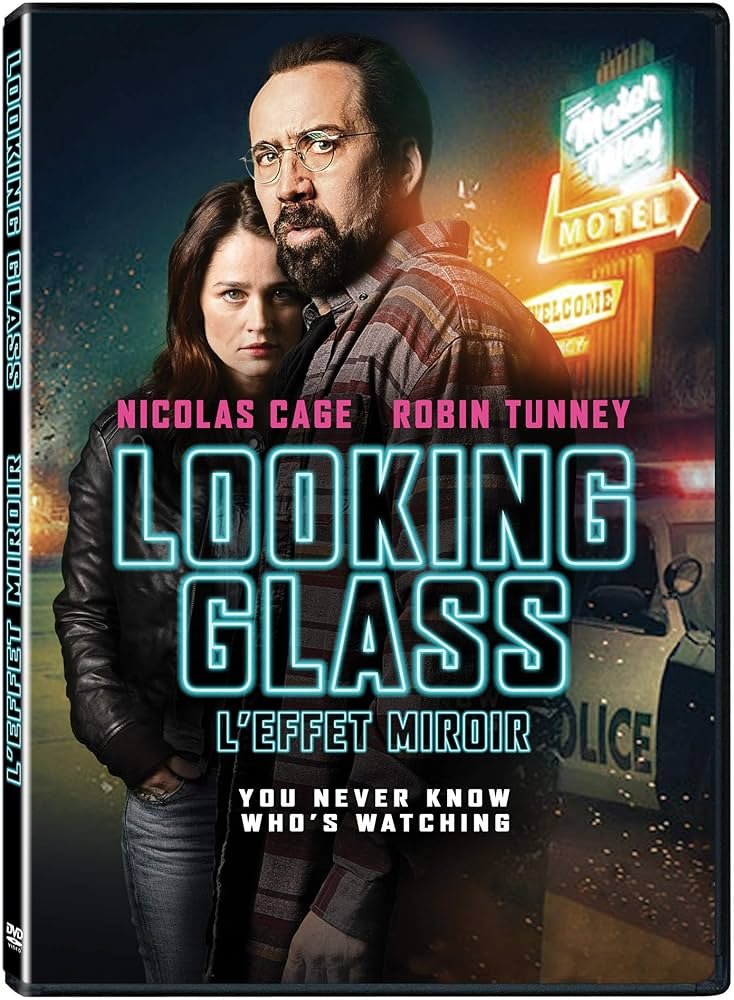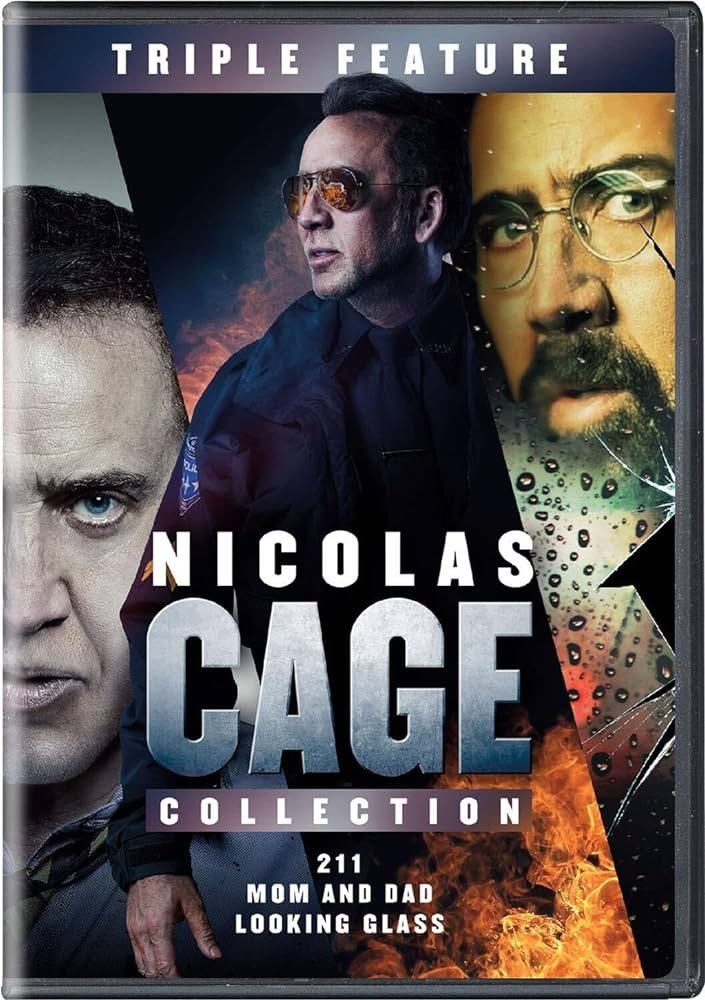Nicolas Cage is Uncharacteristically Restrained and Boring in the 2018 Voyeurism Snooze Looking Glass
The Travolta/Cage Project is an ambitious, years-long multi-media exploration of the fascinating, overlapping legacies of Face/Off stars John Travolta and Nicolas Cage with two components: this online column exploring the actor’s complete filmographies in chronological order and the Travolta/Cage podcast, where Clint Worthington, myself and a series of fascinating guests discuss the movies I write about here.
Read previous entries in the column here, listen to the podcast here, pledge to the Travolta/Cage Patreon at this blessed web address and finally follow us on Twitter at https://twitter.com/travoltacage
In 2016 legendary journalist Gay Talese published a story about Gerald Foos, a motel proprietor who was also a big old pervert. It’s hard to believe that someone in Norman Bates’ line of work might turn out to be a voyeur but the story exploded.
Filmmaker Steven Spielberg (Jaws, Jurassic Park) bought the rights to the story for Sam Mendes to direct but plans for a narrative film were abandoned when they discovered that a documentary was in the works about the same subject matter. I’m not sure why that would be, as there are plenty of stories that have been successfully adapted for both documentary and narrative film but it apparently spelled the death of a classy version of this seedy story about some creep spanking it in secret while watching the clients of his motel get it on.
So instead of an official adaptation of Talese’s article we ended up with the agonizing 2018 psychological thriller Looking Glass. The filmmakers wanted to tell this story in the worst way. They got their wish. I can imagine worse, more incompetent versions of this tawdry tale but I can’t imagine one this boring.
I suffered through Looking Glass after experiencing the lunacy of Between Worlds, which is Lynchian and casts Cage as the father of a dead child but tonally could not be more dissimilar from this snooze.
I could be wrong but it feels like Cage has played the tormented father of a dead child in at least five or six films in the past fifteen years. None of these films have the seriousness or intellectual heft to do justice to something as intense and tricky as the unfathomable grief of parents who lose their progeny when they’re still just children.
Unless it is handled artfully, killing off a protagonist’s child almost invariably feels cheap and unearned, pandering and tasteless. It’s a heavy-handed way of establishing that the suffering souls at the center of the film are haunted by the worst kind of pain.
It’s a cliche that has been run into the ground by Cage’s films of this period alone. Looking Glass is uncharacteristically dry and restrained for a late-period Nicolas Cage movie but it’s every bit as dreadful and tedious as Cage’s more lively efforts from the era.
Cage, who rather notably does not have a crazy accent, or dress like a lunatic, or wear an insane wig or eat a cockroach or do any of the things that he does when he’s feeling challenged and emotionally invested, stars as Ray, a troubled soul who has chosen to buy a motel in the California desert and run it with wife Maggie (Robin Tunney) as a way of getting over the mysterious and tragic death of their child, a death that they might have caused through inebriation and neglect.
They need to get away from all of that pain and guilt and shame so they perplexingly decide to buy a creepy motel in a small town that appears to have five residents, all of them creepy. There’s cop Howard (Marc Blucas), who comes around looking for a cup of coffee and some conversation and seems just a little too friendly and a little too interested in the goings on at a motel where, to be fair, nothing much seems to be going on.
Then there’s a chatty truck driver who likes to reserve room ten for extramarital romps with sex workers, a gas station clerk and various sex workers who similarly use mysterious room 10 while entertaining clients.
One out of three ain’t bad!
The thing about Looking Glass is that NOTHING happens in it. Nothing. For a good hour or so all that happens is Cage wandering around a nondescript motel looking concerned and worried that something creepy is happening at the creepy motel he bought from a creepy old dude whose clientele consists exclusively of creeps.
At one point a dead pig is thrown in the pool. People start turning up dead around the motel. Ray then discovers the secret of room 10: there’s a tunnel that allows the motel proprietor to watch the people in the room have sex. Ray is troubled by this discovery but he also kind of likes to watch people have sex, including a sex worker/dominatrix he strikes up a flirtation with.
Can Ray trust himself? Could he be responsible for the deaths? At one point the cop asks Ray if he did it and Ray asks the cop what he’s talking about and then the cop asks Ray if he did it again. Then the cycle repeats itself five or six more times. It’s an exchange that suggests what the work of David Mamet might be like if he was dropped on his head as a baby and had no talent.
Forget slow-burn: Looking Glass is a no-burn thriller devoid of thrills. Director Tim Hunter wrote the cult 1979 youth gone wild drama Over the Edge and directed the 1986 masterpiece River’s Edge along with three episodes of Twin Peaks but his work here is frustratingly generic and workmanlike.
I prefer the screaming craziness of Between Worlds to this moderately tasteful boredom. Looking Glass takes forever to get going, then does nothing to reward our patience.
Cage’s direct-to-streaming fodder from this nadir is often screamingly bad but it’s seldom this dull.
Good God Nicolas Cage has made a lot of terrible movies. And a lot of movies, period. And I will watch and write about every last one of them. That’s been a fascinating journey but one that is deeply masochistic much of the time as well.
Subscribe to the EveryEpisodeEver newsletter here
Did you enjoy this article? Then consider becoming a patron here
AND you can buy my books, signed, from me, at the site’s shop here








